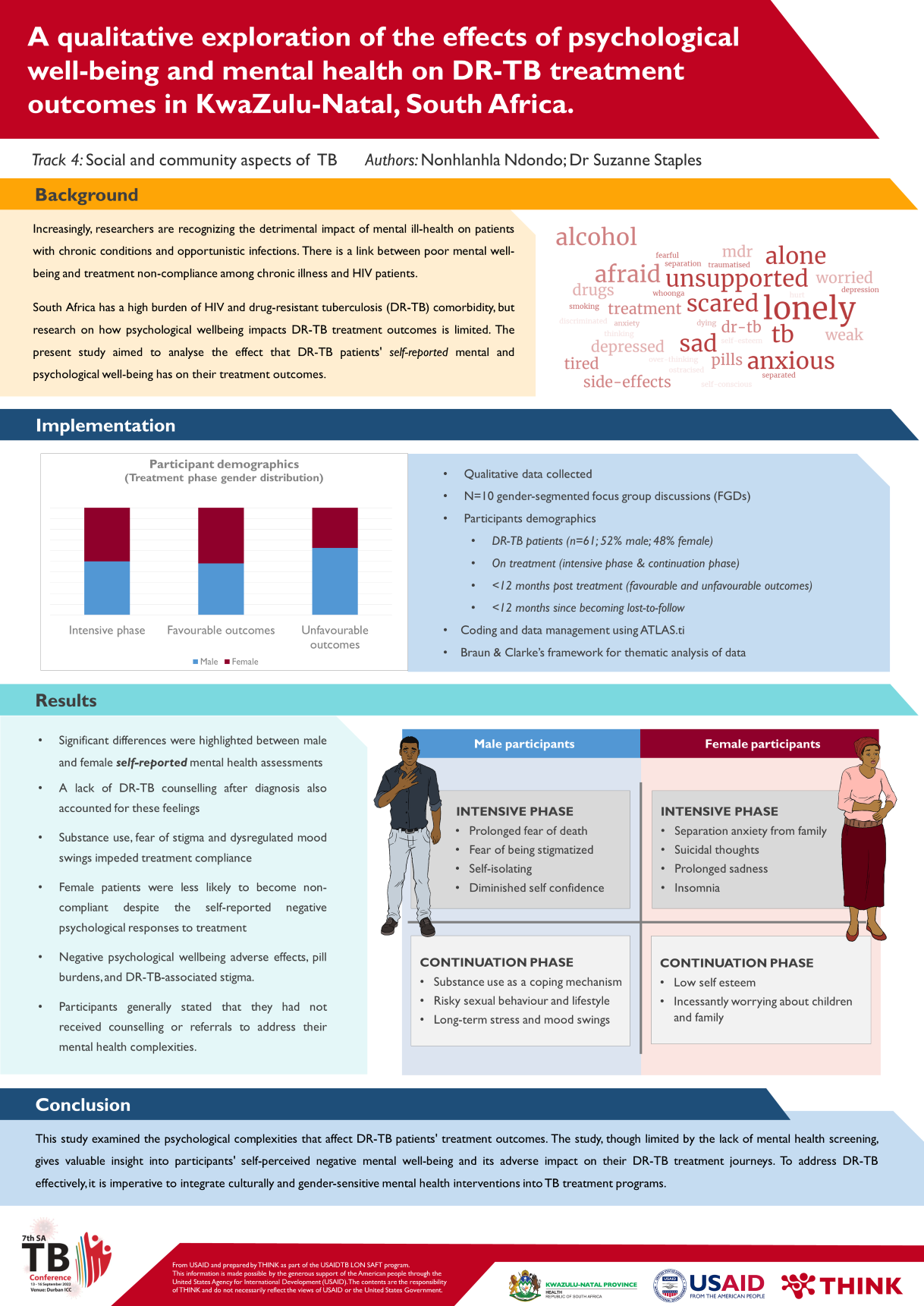7th SA TB Conference 2022 Poster Presentation
Track 4: Social and community aspects of TB
Authors: Nonhlanhla Ndondo; Dr Suzanne Staples
Background
Increasingly, researchers are recognizing the detrimental impact of mental ill-health on patients with chronic conditions and opportunistic infections. There is a link between poor mental well-being and treatment non-compliance among chronic illness and HIV patients.
South Africa has a high burden of HIV and drug-resistant tuberculosis (DR-TB) comorbidity, but research on how psychological wellbeing impacts DR-TB treatment outcomes is limited. The present study aimed to analyse the effect that DR-TB patients’ self-reported mental and psychological well-being has on their treatment outcomes.
Implementation
- Qualitative data collected
- N=10 gender-segmented focus group discussions (FGDs)
- Participants demographics
- DR-TB patients (n=61; 52% male; 48% female)
- On treatment (intensive phase & continuation phase)
- <12 months post treatment (favourable and unfavourable outcomes)
- <12 months since becoming lost-to-follow
- Coding and data management using ATLAS.ti
- Braun & Clarke’s framework for thematic analysis of data
Results
- Significant differences were highlighted between male and female self-reported mental health assessments
- A lack of DR-TB counselling after diagnosis also accounted for these feelings
- Substance use, fear of stigma and dysregulated mood swings impeded treatment compliance
- Female patients were less likely to become non-compliant despite the self-reported negative psychological responses to treatment
- Negative psychological wellbeing adverse effects, pill burdens, and DR-TB-associated stigma.
- Participants generally stated that they had not received counselling or referrals to address their mental health complexities.
Conclusion
This study examined the psychological complexities that affect DR-TB patients’ treatment outcomes. The study, though limited by the lack of mental health screening, gives valuable insight into participants’ self-perceived negative mental well-being and its adverse impact on their DR-TB treatment journeys. To address DR-TB effectively, it is imperative to integrate culturally and gender-sensitive mental health interventions into TB treatment programs.

